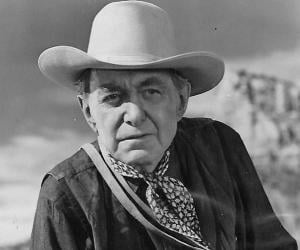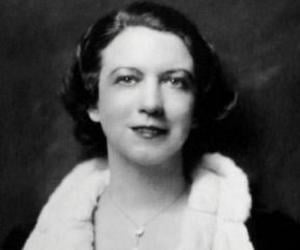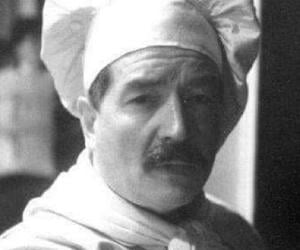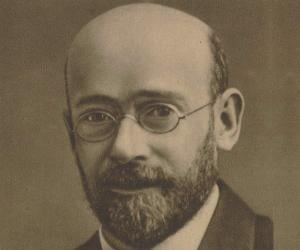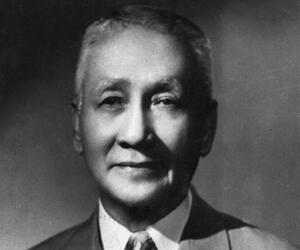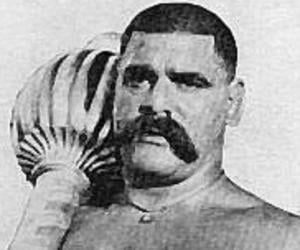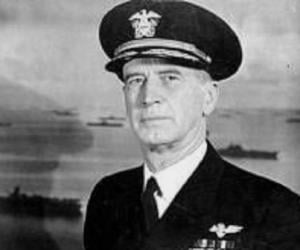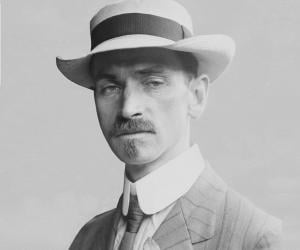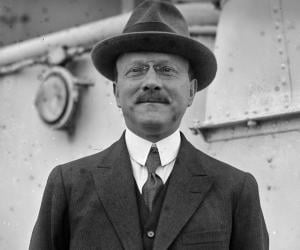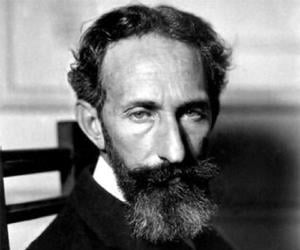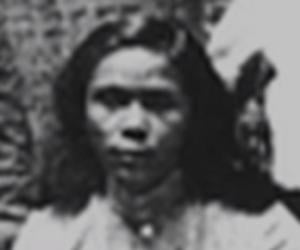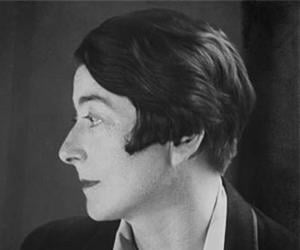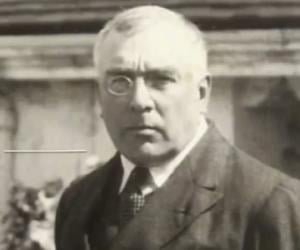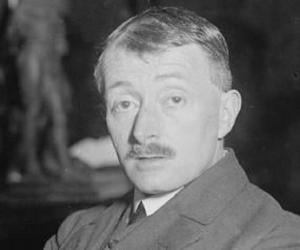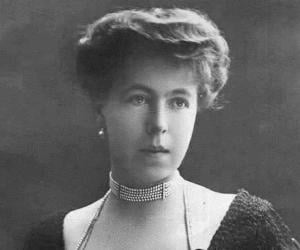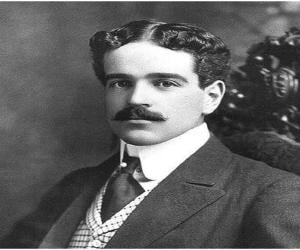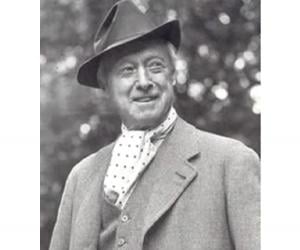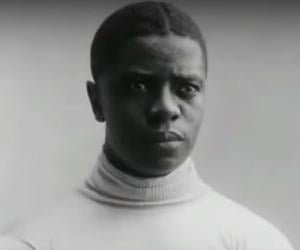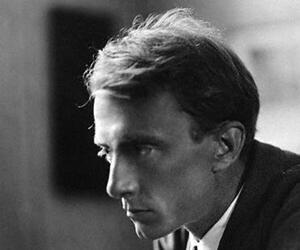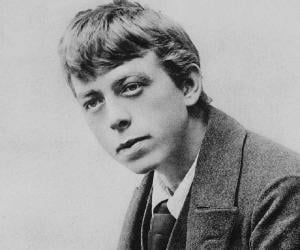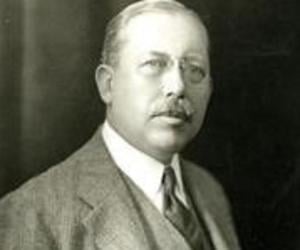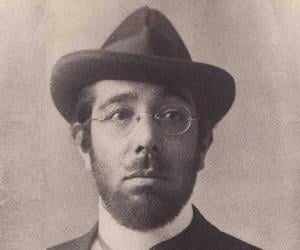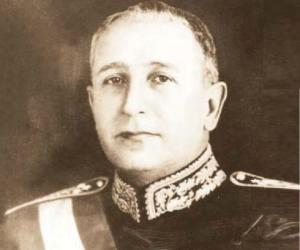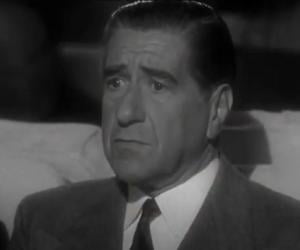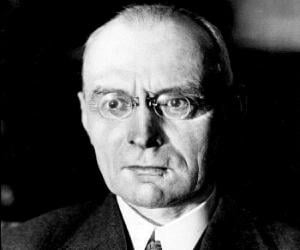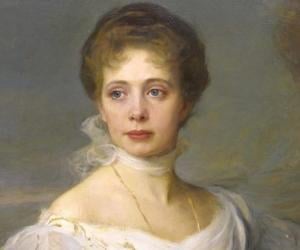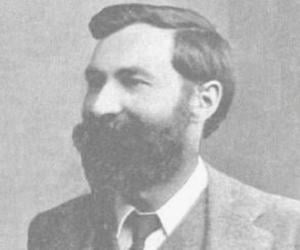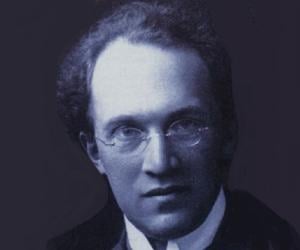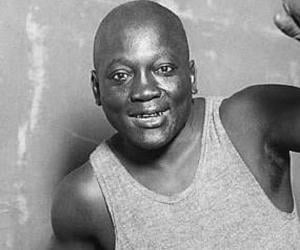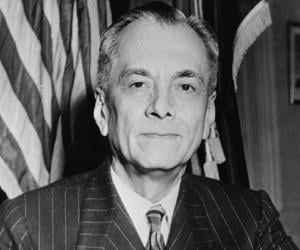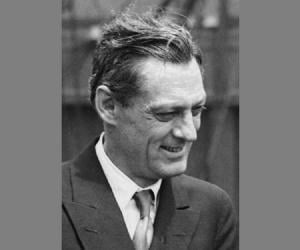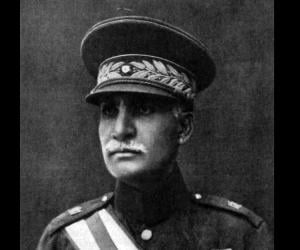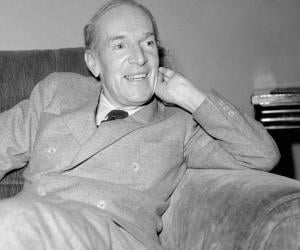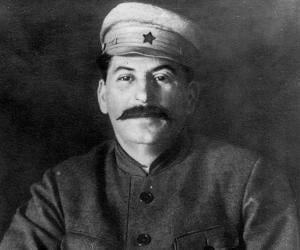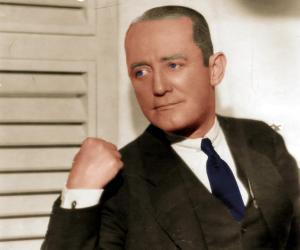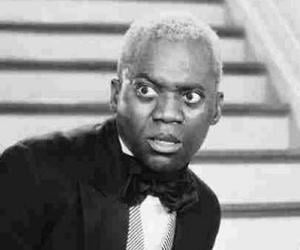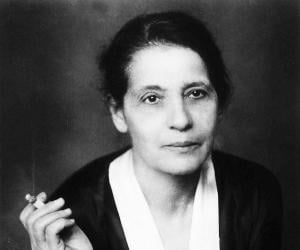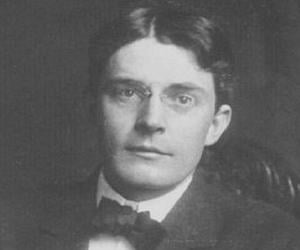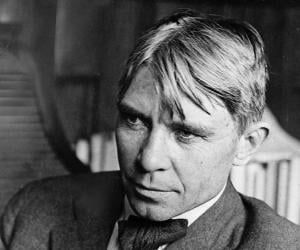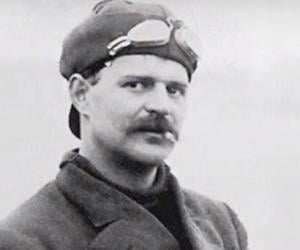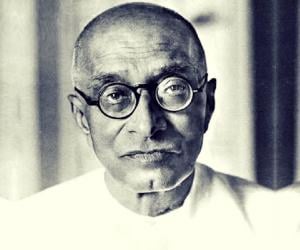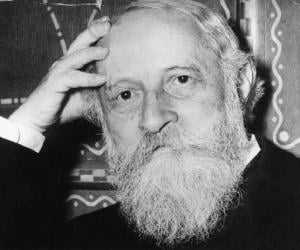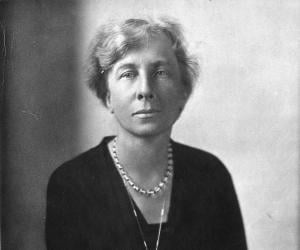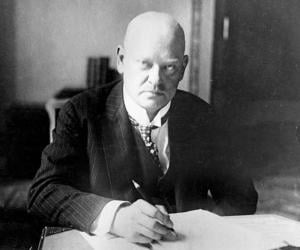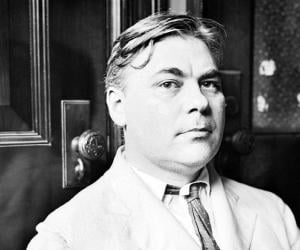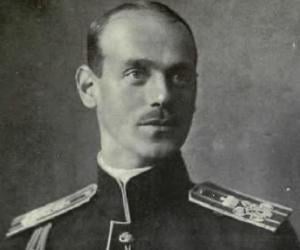Famous People Born In 1878
Discover the most famous people born in 1878. The list includes people like Joseph Stalin, Pancho Villa, Upton Sinclair, Lise Meitner, Jack Johnson (Boxer) and many more. This list of celebrities is loosely sorted by popularity. People featured on this list, include political leaders, soldiers, novelists and historians born in 1878. This list includes people from United States, Germany, Japan & Austria and many more countries.
Vote for Your Favourite Person
Right IconThis ranking is based on an algorithm that combines various factors, including the votes of our users and search trends on the internet.
1
Jack Johnson(One of the Most Influential Boxers of All Time)
Birthdate: 31st March
Sun Sign: Aries
Birthplace: Galveston, Texas, United States
Died: June 10, 1946
Jack Johnson was an American boxer and one of the most dominant champions of his generation. Considered one of the most influential boxers ever, Jack Johnson became the first African American to win the world heavyweight championship at the peak of the Jim Crow era. He is often credited with influencing popular boxers like Muhammad Ali.
Birthdate: 19th August
Sun Sign: Leo
Birthplace: Baler, Philippines
Died: August 1, 1944
Filipino statesman Manuel L. Quezon, or MLQ, was the president of the Commonwealth of the Philippines from 1935 to 1944, thus becoming the first Filipino to lead a government of the whole of the Philippines. He formed a government-in-exile in the U.S. after the Japanese invasion during World War II.
3
Lionel Barrymore(Actor & Director Best Known for His Role as ‘Mr. Potter’ in the Film ‘It's a Wonderful Life’)
Birthdate: 28th April
Sun Sign: Taurus
Birthplace: Philadelphia
Died: November 15, 1954
One of the earliest members of the famous Barrymore family of actors, Lionel Barrymore remains best known for his portrayal of Mr. Potter in the 1946 film It's a Wonderful Life. Unlike many of his descendants, Barrymore also composed music. For his contribution to motion picture and radio, Barrymore was honored with two stars on the Hollywood Walk of Fame.
Birthdate: 15th March
Sun Sign: Pisces
Birthplace: Alasht, Iran
Died: July 26, 1944
Rezā Shāh was a military colonel who founded the Pahlavi dynasty and reigned as the Shah of Iran from December 1925 to September 1941. He was also the prime minister of Iran from October 1923 to November 1925. His tenure saw the introduction of many social, economic, and political reforms, and he is regarded as the founder of modern Iran.
Birthdate: 20th September
Sun Sign: Virgo
Birthplace: Baltimore, Maryland
Died: November 25, 1968
Pulitzer Prize-winning author and political activist Upton Sinclair is best remembered for his novels such as The Jungle and The Brass Check, which mirrored the exploitative and unjust nature of various sectors. He was also an occult and telepathy enthusiast. He was actively involved with the Socialist and Democratic parties.
6
Joseph Stalin(Soviet Political Leader & Dictator Who Led the Soviet Union from 1922 Until His Death in 1953)
Birthdate: 18th December
Sun Sign: Sagittarius
Birthplace: Gori, Georgia
Died: March 5, 1953
Controversial Russian dictator, Joseph Stalin, ruled the Soviet Union for around 25 years from 1929 to 1953 and is credited for making it a prominent industrial and military power of the world. During the Second World War, his army defeated the Nazis too. However, his regime was also one of terror and brutality where numerous Soviet citizens lost their lives.
7
George M. Cohan(Entertainer, Playwright and Composer Who is Considered to be ‘The Father of American Musical Comedy’)
Birthdate: 3rd July
Sun Sign: Cancer
Birthplace: Providence, Rhode Island, United States
Died: November 5, 1942
Birthdate: 25th May
Sun Sign: Gemini
Birthplace: Richmond, Virginia, United States
Died: November 25, 1949
9
Lise Meitner(Austrian-Swedish Physicist Who Discovered the Element Protactinium)
Birthdate: 7th November
Sun Sign: Scorpio
Birthplace: Vienna, Austria
Died: October 27, 1968
Lise Meitner was an Austrian-Swedish physicist best remembered for her contributions that led to the discoveries of nuclear fission and the element protactinium. Nicknamed the German Marie Curie by Albert Einstein, Lise Meitner became the second woman in the world to receive a doctorate in physics in 1905. In 1997, chemical element 109 meitnerium was named in her honor.
Birthdate: 9th January
Sun Sign: Capricorn
Birthplace: Travelers Rest, South Carolina, United States
Died: September 25, 1958
John B. Watson was the first to introduce the theory of behaviorism to psychology. He believed human behavior, like animal behavior, should be studied under objective and experimental conditions. One of his experiments included conditioning the fear of white rats into an 11-year-old boy he named Little Albert.
Birthdate: 6th January
Sun Sign: Capricorn
Birthplace: Galesburg, Illinois, United States
Died: July 22, 1967
Carl Sandburg had begun working since age 11 and been employed in various odd jobs, such as a truck driver, a harvester, and a brickyard hand, before being part of the Illinois Infantry. The two-time Pulitzer-winning poet and biographer late also won a Grammy for his recording of Lincoln Portrait.
12
Louis Chevrolet(Race Car Driver and Co-Founder of the ‘Chevrolet Motor Car Company’ and ‘Frontenac Motor Corporation’)
Birthdate: 25th December
Sun Sign: Capricorn
Birthplace: La Chaux-de-Fonds, Switzerland
Died: June 6, 1941
Louis Chevrolet was a Swiss race car driver. He is credited with co-founding the Chevrolet Motor Car Company, which is currently a major manufacturer of cars. He is also credited with founding the Frontenac Motor Corporation. Louis Chevrolet was inducted into several halls of fame, including the International Motorsports Hall of Fame and Motorsports Hall of Fame of America.
Birthdate: 16th January
Sun Sign: Capricorn
Birthplace: The Bronx, New York, United States
Died: September 21, 1947
14
Elizabeth Arden
(Canadian-American Businesswoman)
Birthdate: 31st December
Sun Sign: Capricorn
Birthplace: Woodbridge, Ontario, Canada
Died: October 18, 1966
Birthdate: 9th December
Sun Sign: Sagittarius
Birthplace: Thorapalli, Tamil Nadu, India
Died: December 25, 1972
Bharat Ratna-winner C. Rajagopalachari, nicknamed Rajaji or C.R., was the last Governor-General of India and the first Indian to hold the post. He had also served as an INC leader, the Governor of West Bengal, and the Premier of the Madras Presidency. He launched the Swatantra Party and propagated peace.
Birthdate: 3rd August
Sun Sign: Leo
Birthplace: Birkenhead, England
Died: December 9, 1956
English-American chef, Charles Joughin, was the chief baker aboard the RMS Titanic. A survivor of the disaster, he was depicted in two major films about the Titanic. He was also on board the SS Oregon when it sank and served on ships operated by the American Export Lines, as well as on World War II troop transports.
17
Martin Buber(Religious Philosopher Known for His Philosophy of Dialogue)
Birthdate: 8th February
Sun Sign: Aquarius
Birthplace: Vienna, Austria
Died: June 13, 1965
Martin Buber was an Austrian and Israeli philosopher who received ten nominations for the Nobel Prize in Literature and seven nominations for the Nobel Peace Prize. Renowned for his philosophy of dialogue, Buber is best known for his famous essay, I and Thou. In 1951, he was honored by the University of Hamburg with the prestigious Goethe Award.
18
Janusz Korczak
(Polish Jewish Educator, Children’s Author and Pedagogue)
Birthdate: 22nd July
Sun Sign: Cancer
Birthplace: Warsaw, Poland
Died: August 7, 1942
A reputed Polish doctor, Henryk Goldszmit was better known by his pseudonym, Janusz Korczak, which he used to write several children’s books. Apart from working as a pediatrician and a military doctor, he also owned a Jewish orphanage and stayed with the children while the Germans deported him and other staff to Treblinka.
19
Sergio Osmeña
(The 4th President of the Philippines)
Birthdate: 9th September
Sun Sign: Virgo
Birthplace: Cebu City, Philippines
Died: October 19, 1961
The 4th president of the Philippines, Sergio Osmeña had also been the country’s 1st vice-president. Initially a military commander of the Philippine army, he had been part of World War II. He had begun his political career as the governor of Cebu. He also founded the Nationalist Party.
20
The Great Gama
(Amateur wrestler)
Birthdate: 22nd May
Sun Sign: Gemini
Birthplace: Amritsar
Died: May 22, 1963
A world-renowned Indian pehlwan, or wrestler, Ghulam Mohammad Baksh Butt competed using the ring name The Great Gama. Also known as Rustam-e-Hind, he remained undefeated over an illustrious career of almost 5 decades and even saved many Hindus during the communal riots at the time of the Partition of India.
21
Ernest Joseph King
(Naval Officer)
Birthdate: 23rd November
Sun Sign: Sagittarius
Birthplace: Lorain, Ohio, United States
Died: June 25, 1956
Birthdate: 24th May
Sun Sign: Gemini
Birthplace: Oakland, California, United States
Died: January 2, 1972
Birthdate: 10th May
Sun Sign: Taurus
Birthplace: Berlin
Died: October 3, 1929
Gustav Stresemann was the only one of his siblings to complete university education. He grew up to serve as the chancellor of the Weimar Republic briefly, before becoming the foreign minister. He shared the Nobel Peace Prize with the French foreign minister Aristide Briand for an agreement of reconciliation.
24
Glenn Curtiss
(American Aviation and Motorcycling Pioneer & Founder of the U.S. Aircraft Industry)
Birthdate: 21st May
Sun Sign: Gemini
Birthplace: Hammondsport, New York, United States
Died: July 23, 1930
Glenn Curtiss was an American motorcycling and aviation pioneer. He is credited with founding the U.S. aircraft industry. He is also credited with forming the Curtiss Aeroplane and Motor Company which merged with the Wright Aeronautical to form Curtiss-Wright Corporation in 1929. Glenn Curtiss’ company played a major role in the years leading up to the First World War.
25
André Citroën
(French Industrialist and the Founder of French Automaker 'Citroën')
Birthdate: 5th February
Sun Sign: Aquarius
Birthplace: Paris, France
Died: July 3, 1935
André Citroën was a French industrialist. He is credited with founding the popular automobile company Citroën and is best remembered for making Citroën cars. He also helped his company become the world's fourth-largest automobile manufacturer by the beginning of the 1930s. In 1998, he was inducted into the Automotive Hall of Fame.
26
Horacio Quiroga
(Uruguayan Playwright, Poet and Short Story Writer)
Birthdate: 31st December
Sun Sign: Capricorn
Birthplace: Salto, Uruguay
Died: February 19, 1937
Horacio Quiroga was a Uruguayan poet, playwright, and short story writer. He is best remembered for depicting jungles and characters with mental illnesses in his stories. Horacio Quiroga is credited with influencing the works of Gabriel García Márquez and Julio Cortázar.
27
Macario Sakay
(Revolutionary)
Birthdate: 1st March
Sun Sign: Pisces
Birthplace: Manila, Philippines
Died: September 13, 1907
Birthdate: 9th August
Sun Sign: Leo
Birthplace: Enniscorthy, Ireland
Died: October 31, 1976
29
P. D. Ouspensky
(Philosopher, Writer)
Birthdate: 5th March
Sun Sign: Pisces
Birthplace: Kharkiv, Ukraine
Died: October 2, 1947
Birthdate: 1st June
Sun Sign: Gemini
Birthplace: Ledbury, United Kingdom
Died: May 12, 1967
31
Princess Alexandra of Saxe-Coburg and Gotha
(Aristocrat)
Birthdate: 1st September
Sun Sign: Virgo
Birthplace: Schloss Rosenau, Coburg, Rödental, Germany
Died: April 16, 1942
32
William Kissam Vanderbilt II
(American Motocross Racer and Sailor)
Birthdate: 26th October
Sun Sign: Scorpio
Birthplace: New York, United States
Died: January 8, 1944
William Kissam Vanderbilt II was an American yachtsman and motor racing enthusiast. Born into the popular Vanderbilt family, William developed an interest in yachting and horse racing. He participated in yacht racing in 1900 and won the Sir Thomas Lipton Cup. A racing enthusiast, William owned many fast cars and launched an international auto racing event called the Vanderbilt Cup.
Birthdate: 8th October
Sun Sign: Libra
Birthplace: Mendham, Suffolk
Died: July 17, 1959
34
Major Taylor
(One of the Greatest American Sprinters of All Time)
Birthdate: 26th November
Sun Sign: Sagittarius
Birthplace: Indianapolis, Indiana, United States
Died: June 21, 1932
Major Taylor was a professional cyclist who set many world records between 1898 and 1899. In 1899, he became the first African American to win the sprint event at the world track championships and only the second black athlete to emerge victorious in a world championship irrespective of the sport.
Birthdate: 3rd March
Sun Sign: Pisces
Birthplace: Lambeth, Surrey, England
Died: April 9, 1917
Educated at Oxford, poet Edward Thomas spent a considerable time working rather reluctantly as a journalist and penning nature studies and critiques of 19th-century authors. An encounter with Robert Frost inspired him to write poems. He was killed in action in Arras, France, during World War I.
Birthdate: 15th April
Sun Sign: Aries
Birthplace: Biel/Bienne, Switzerland
Died: December 25, 1956
37
James Truslow Adams
(Historian of the modern age, Historian, Biographer)
Birthdate: 18th October
Sun Sign: Libra
Birthplace: Brooklyn, New York, United States
Died: May 18, 1949
38
Abdelaziz of Morocco
(Sultan of Morocco)
Birthdate: 24th February
Sun Sign: Pisces
Birthplace: Morocco
Died: June 10, 1943
39
Wallace Hartley
(Bandleader, Violinist)
Birthdate: 2nd June
Sun Sign: Gemini
Birthplace: Colne, Lancashire, England
Died: April 15, 1912
40
Barney Oldfield
(American Automobile Racer)
Birthdate: 29th January
Sun Sign: Aquarius
Birthplace: Wauseon, Ohio, United States
Died: October 4, 1946
41
Jorge Ubico
(21st President of Guatemala)
Birthdate: 10th November
Sun Sign: Scorpio
Birthplace: Guatemala City, Guatemala
Died: June 14, 1946
42
Ferenc Molnár
( Hungary’s Most Celebrated and Controversial Novelist and Playwright Known for His Novel 'The Paul Street Boys')
Birthdate: 12th January
Sun Sign: Capricorn
Birthplace: Budapest, Hungary
Died: April 1, 1952
Known for his short stories and plays reflecting the life in Budapest, author Ferenc Molnár never identified with any particular literary movement. His best-known works include the short story anthology Muzsika and the novel The Paul Street Boys. Initially an aspiring lawyer, he later worked as a war correspondent.
43
Robert Warwick
(A Matinee Idol During the Silent Film Era with Over 200 Film Appearances)
Birthdate: 9th October
Sun Sign: Libra
Birthplace: Sacramento, California, United States
Died: June 6, 1964
A star of the silent-film era, Robert Warwick started his career with operettas and stage roles and then graduated to romantic films such as The Face in the Moonlight. Throughout his career, he switched between Broadway and films. He was also part of the US army during World War I.
44
Alexander von Falkenhausen
(Soldier, Politician, Military personnel)
Birthdate: 29th October
Sun Sign: Scorpio
Birthplace: Silesia Province
Died: July 31, 1966
45
Archduchess Elisabeth Amalie of Austria
(Princess)
Birthdate: 7th July
Sun Sign: Cancer
Birthplace: Reichenau an der Rax, Austria
Died: March 13, 1960
Birthdate: 29th July
Sun Sign: Leo
Birthplace: Walnut, Illinois
Died: December 29, 1937
Birthdate: 4th December
Sun Sign: Sagittarius
Birthplace: Tsentralny District, Saint Petersburg, Russia
Died: June 13, 1918
Son of Alexander III, the emperor of Russia, Grand Duke Michael Alexandrovich refused to accept the throne unless Russians were allowed to decide if they wanted the monarchy or a republic. Both Michael and his British secretary, Nicholas Johnson, were arrested and shot to death during the Russian Revolution.
48
Princess Anastasia of Greece and Denmark
(Princess)
Birthdate: 20th January
Sun Sign: Aquarius
Birthplace: Zanesville, Ohio, United States
Died: August 29, 1923
49
Francis Sheehy-Skeffington
(Writer)
Birthdate: 23rd December
Sun Sign: Capricorn
Birthplace: Bailieborough, Ireland
Died: April 26, 1916
Francis Sheehy-Skeffington, or Skeffy, was an Irish author and radical activist. Known for his quirks such as wearing a badge that said “Votes for Women” in college, he started his career as a journalist and later added his wife’s surname to his. He was killed while preventing looting during the Easter Rising.
Birthdate: 23rd March
Sun Sign: Aries
Birthplace: Monaco
Died: March 21, 1934
